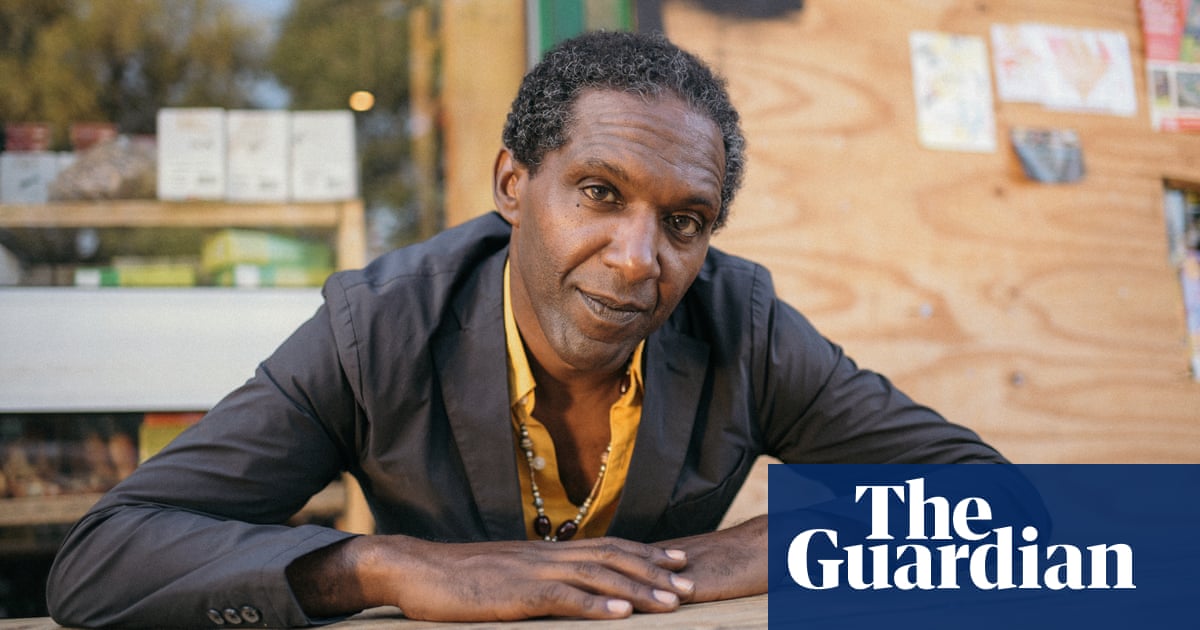
The climate hunger striker who starved himself for more than five weeks outside parliament has said he did not expect ministers would ignore his demands and potentially let him die.
Angus Rose had said he would not eat until Greg Hands, the energy minister, arranged for Sir Patrick Vallance, the chief scientist, to give politicians and, via broadcast, the public, the climate change briefing he gave to Boris Johnson before the Cop26 climate summit.
After 37 days, as fears grew of long-term harm or even sudden death, and with no sign of a concession from ministers, he relented after Caroline Lucas, the Green MP, arranged a briefing for MPs through the all-party parliamentary group on climate change. Rose had originally asked for Vallance to do a televised briefing of cabinet rather than address a parliament committee, but said he was happy with the outcome.
By the end of his strike, he had lost 17kg and was having difficulty standing, but still protested outside parliament every day.
“Before I started the hunger strike, I thought my odds were, no, they wouldn’t let me die,” Rose said. “But … in spite of the warnings being that I had lost a significant percentage of my body weight, that left me in a very high-risk category.
“People in a state of starvation who lose more than 16% of the body mass encounter rapidly deteriorating health … and that’s what some health experts were saying: that I was at very high risk.”
Hands met Rose during his hunger strike and the two corresponded. Rose previously told the Guardian that Hands insisted he could not meet his demand, and had urged him several times to reconsider his protest.
Government sources told the Guardian at the time that ministers felt they could not give in to Rose’s demand, since to do so would encourage others to take similarly risky actions. Meanwhile, Rose’s supporters feared he could suffer sudden heart failure after starving himself for so long.
“It’s an interesting question,” Rose said. “Would they have? Would they have left me there for another week to see what happened? I don’t know.”
Rose accepted the outcome of his strike was a compromise, but said it was a similar compromise to that accepted by Guillermo Fernandez, the Swiss hunger striker from whom he had taken inspiration.
“He was pressurising the environment minister, all of the pressure was put on her head,” Rose said. “And in my case, all of my pressure was put on Greg Hands. And in both cases, they didn’t agree to the demand, and in both cases there was an alternate solution.
“My goal was to get the briefing by whatever means, although the way I saw it up until it was secured, I wasn’t going to back down until Greg agreed to the demand.
“Over the 37 days there was only less than half an hour when I sat back and contemplated and reflected on the enormity of the situation ahead of me, and that wasn’t fun.
“The way I tried to handle that was just on a day-to-day basis, and over the last 10 days or so, in particular, I got quite a bit weaker, and it started impacting my thinking, my memory. But I was still just doing one day at a time, and I wasn’t going to stop until my demand was met.
“Yes, it is, I suppose, a bit of a compromise. But I couldn’t say no to the briefing [that] has been secured.”
Rose said he felt the “vast majority” of the public he met in his five weeks standing outside parliament supported his aims. He also had a team of about 40 people supporting him, lobbying press and politicians, and orchestrating letters from scientists and medics backing his demand.
Towards the end, many were encouraging him to back down. But not all. “I had a friend who was prepared to bring me from hospital in a wheelchair back to be in front of the houses of parliament if I collapsed,” Rose said.
“And I was like, wow, I really didn’t expect that. I didn’t expect [that] because it’s so extreme, you know? Who would have been prepared to do that?”
Rose is part of a growing wave of climate hunger strikers. As well as Fernandez, last year a group of youths staged a shorter hunger strike outside the White House in the US; in the UK, climate activist Emma Smart refused food when she was jailed for protesting with Insulate Britain; Rose himself joined climate hunger strikers in 2019 in the aftermath of Extinction Rebellion’s protests.
Rose said the growing numbers of climate hunger strikers, and the self-immolation of Wynn Bruce in Washington last month, were part of a “rising tide” of increasingly desperate activism.
“People will be taking increasingly desperate measures because the government’s actions and its policies aren’t consistent with maintaining a habitable planet on which to live,” Rose said.
“This country is currently aiming for world that is two and a half to three degrees warmer. Forget about one and a half. Forget about two. The current policies and actions will see us looking at a world that’s two and a half to three degrees warmer.
“So yeah, there these are desperate actions, but they are consistent with the risks.”












